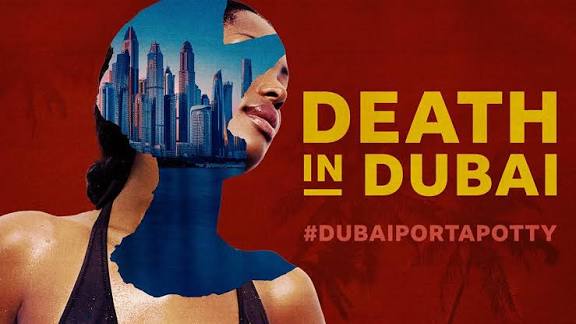In Kampala’s crowded taxi parks, where hawkers shout and matatus blare, the BBC Eye investigation “Death in Dubai” has become the talk of the town. From the dusty bars of Kisenyi to the WhatsApp groups buzzing in Makerere, the names Mona Kizz and Kayla Birungi are no longer just whispers. They’re a wound, raw and open, forcing Uganda to face a truth it’s long danced around: the dreams of its daughters are being sold cheap, and too many are paying with their lives.
The podcast hit like a thunderclap, stripping away the jokes and memes that once swirled around hashtags like #DubaiPortaPotty. On X, where Uganda’s loudest voices—journalists, activists, even the guy next door—spill their hearts, the mood has shifted. There’s no laughter now. Posts drip with sorrow for women lost, fury at systems that failed them, and demands for someone, anyone, to answer for this mess. These aren’t just stories of far-off tragedies in Dubai’s glitzy towers—they’re Uganda’s stories, rooted in the daily grind of a country where hope often feels like a luxury.
The BBC laid it bare: women, mostly young, lured with promises of “housekeeping jobs” in the Gulf, end up trapped in a nightmare. They’re not cleaning mansions—they’re being forced into sex work, humiliated, and discarded. Mona Kizz and Kayla Birungi, whose deaths were brushed off as “suicides,” are the faces of this betrayal. But their stories aren’t new. For years, whispers have circulated in Uganda’s neighborhoods—tales of girls who left for better lives and came back broken, or not at all. The podcast just turned those whispers into a scream, and now everyone’s listening.
Walk through any market in Kampala, and you’ll hear why these women leave. Jobs are scarce—graduates with shiny degrees hawk airtime on street corners. Rent is due, school fees pile up, and parents look to their daughters to “make a plan.” Labour export agencies, with their glossy flyers and big promises, seem like a lifeline. “Go to Dubai, earn dollars, change your life,” they say. But the podcast exposed the rot: these agencies, often slick-talking middlemen with offices in Ntinda or Kamwokya, are part of a chain that ends in exploitation. They hand girls over to traffickers, who hand them over to clients with no regard for their humanity. And when things go wrong—when a girl like Mona or Kayla doesn’t come home—who’s held accountable? Nobody.
On X, the anger is palpable. Activists with thousands of followers call out the government for dragging its feet, while ordinary Ugandans share stories of cousins or friends who faced the same fate. One post, raw and unfiltered, asked why it takes a foreign broadcaster to make Uganda care. Another demanded that recruiters’ licenses be yanked. The sentiment is clear: this isn’t just about Dubai’s skyscrapers—it’s about the cracks in Uganda’s own backyard. Why are death investigations abroad so quick to close? Why do recruiters, some with cozy ties to big shots, keep operating? These questions hang heavy, like the humid air before a storm.
This isn’t just Dubai’s doing—it’s Uganda’s reality. The numbers tell a grim tale. Over 120,000 Ugandans, mostly women, work in the Gulf, says a report from the folks who track labour migration. But the government’s oversight is a joke—agencies get licenses, but who checks if they’re legit? The Ministry of Gender talks tough, but when the BBC dropped its bombshell, officials scrambled, issuing press releases that felt more like damage control than action. Families of the dead, meanwhile, are left chasing shadows, begging for answers about daughters whose bodies came home in coffins, or worse, never came back at all.
It’s not just policy that’s failing—it’s culture, too. In Uganda, a girl who leaves for the Gulf is often judged before she even boards the plane. “She’s chasing quick money,” they say in the salons or on X, where shade gets thrown faster than a boda boda in traffic. That judgment drowns out the truth: these women aren’t running toward luxury—they’re running from empty wallets and broken dreams. The stigma keeps survivors quiet, families ashamed, and the cycle spinning. On X, some voices are fighting back, sharing stories of empathy, urging people to see these women as victims of a system, not villains in a gossip thread.
This story stretches beyond Uganda’s borders—it’s Africa’s pain. Kenyan women, Ethiopian girls, Nigerian sisters—they’re all caught in the same trap. The Gulf’s kafala system, which ties workers to bosses like modern-day serfs, is a breeding ground for abuse. Reports from groups like Human Rights Watch talk of withheld wages, beatings, and passports confiscated, leaving women like Mona and Kayla with nowhere to run. The African Union has made noise about protecting migrants, but where’s the follow-through? “Death in Dubai” isn’t just a podcast—it’s a wake-up call for a continent sending its youth to the slaughter while the world looks away.
Muwado, where Africans gather to tell their truths, is the kind of place where this story can’t just be another headline. It’s a chance to dig deep, to ask what it means to be a society that loses its daughters to desperation. Mona and Kayla aren’t just names—they’re mirrors showing Uganda what happens when poverty, weak laws, and silence collide. They’re a warning to fix what’s broken before more lives are lost. The recruiters profiting off misery, the officials dodging accountability, the culture quick to judge—they’re all part of the problem.
So, what’s the way forward? For starters, Uganda needs to crack down on these agencies. Shut down the shady ones, audit the rest, and make sure every girl leaving knows her rights. The government could set up a hotline, a real one, for workers to call when things go south abroad. Embassies in the Gulf need to step up, not just issue statements when the cameras are rolling. And at home, the hustle for jobs has to change. Why not pour money into training programs or small businesses so youth don’t have to bet their lives on a plane ticket? Civil society—groups like those women’s networks in Kampala—could lead campaigns to shift how people talk about migrant workers, swapping shame for support.
X is already showing the way. The posts pouring in aren’t just venting—they’re organizing. People are naming names, sharing resources, demanding meetings with MPs. That energy needs to spill offline, into protests, petitions, and real pressure on those in power. Muwado can be a spark, a place to turn stories into action, to connect the auntie in Gulu with the activist in Nairobi, all fighting for the same thing: a world where no African woman has to risk her life for a paycheck.
The deaths in Dubai aren’t the end—they’re a beginning. They’re a call to build a Uganda where dreams don’t come with a death sentence. Where every woman who leaves for work comes back alive, head held high. The voices on X, in the streets, in the churches—they’re shouting for change. Whether that shout fades or grows louder depends on what Uganda does next. This isn’t just about Mona or Kayla—it’s about every girl standing at a crossroads, suitcase in hand, hoping for better. Their lives are Uganda’s heart, and it’s time to stop breaking it.
This post was created with our nice and easy submission form. Create your post!




